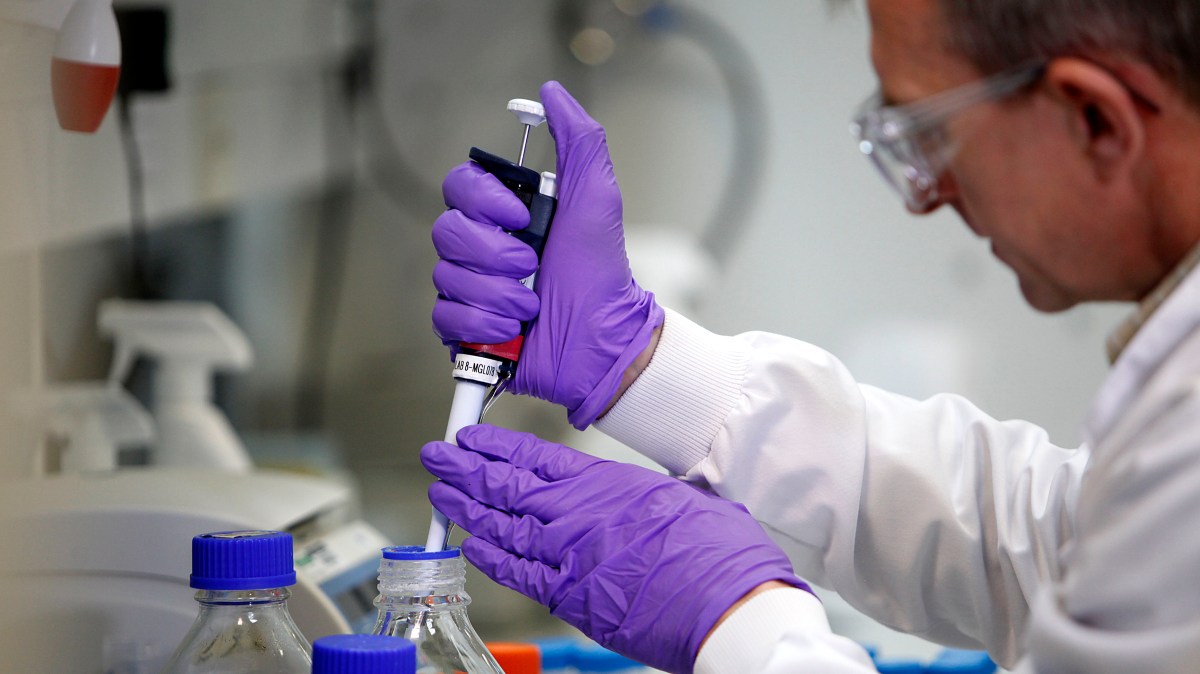
AstraZeneca has been one of Britain’s industrial success stories
MARY TURNER FOR THE TIMES
When the government launched its Life Sciences Sector Plan on July 16 the tone was buoyant and the aim impressive: to turn “cutting-edge research into real-world results: new treatments, faster diagnosis, and more lives saved”. The “roadmap” to these sunlit uplands was constructed around three “core pillars”: to enable world-class scientific research and development; to attract global capital and grow UK companies; and to deliver better outcomes for patients in a more modern, preventive healthcare system.
Few would dare to argue with these noble aspirations. And the UK’s life sciences industry, which is worth £108 billion and employs more than 300,000 people, has indeed long been seen as a jewel in the country’s economic crown. But the shadow of potential decline has fallen across it in recent years, with a cautionary tale attached: its name is AstraZeneca.
Britain’s most valuable public company, presently worth £170 billion, has deep roots in this country: it was the result of a 1999 merger between Sweden’s Astra and the UK’s Zeneca Group, itself an offshoot of the British chemical behemoth ICI. Its chief executive, Sir Pascal Soriot, in situ since 2012, has shown a strong commitment to nurturing scientific discovery. That yielded its most dramatic benefits during the Covid-19 pandemic when AstraZeneca’s vaccine, developed with Oxford University, was a British success story.
Yet since then its relations with the UK government have not all been smooth sailing. In 2021, as a response to Britain’s “discouraging” taxes, the company located a £320 million new factory in Ireland rather than England. Sir Pascal was also unhappy with the decision by Nice, England’s drug-approval body, to reject the firm’s breast cancer drug Enhertu on cost grounds, despite its adoption in Scotland. Perhaps the most dispiriting episode, however, involved AstraZeneca’s decision to abandon a proposed £450 million expansion of its vaccine plant in Speke, near Liverpool, after the incoming Labour government threatened to slash the subsidies it was previously offered. There have been worrisome murmurs of relisting in the US.
• AstraZeneca boss demands big rise in NHS drug spending
Those examples — and the dissatisfaction they indicate — have echoes in the wider mood in the life sciences industry. Many pharmaceutical companies feel that the UK has moved from striking a necessarily hard bargain on NHS drug prices to a resistant mindset that overly restricts patients’ access to new treatments.
Last year Paul Hudson, the British chief executive of the French company Sanofi, lamented a UK system that is slow to pass on medical advances: for every 100 patients that get a new medicine within its first year of production in EU countries, he said, only 21 UK patients enjoy the same benefit. The share of the UK health budget spent on new medicines has fallen to less than 10 per cent, compared with 15 per cent in France and 17 per cent in Germany. Meanwhile, companies say, overly tight NHS price-capping on drugs is now threatening investment in Britain.
Clearly a balance must be struck between NHS budgetary restraints and encouraging life-changing research and development. Yet the warnings from AstraZeneca suggest that the pharmaceutical industry is being viewed through too myopic and punitive a lens, because it is easier to seek discounts on drugs than it is to improve NHS efficiency.
